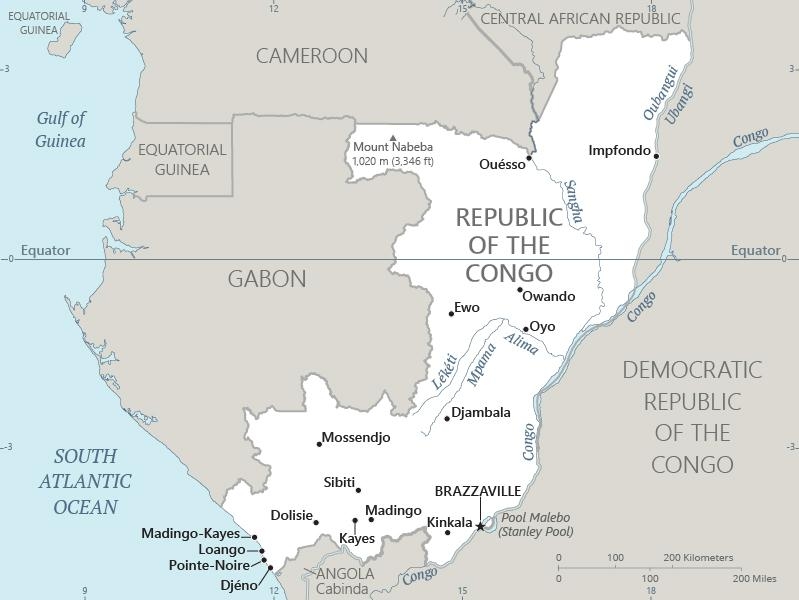Algeria’s national oil company (NOC) Sonatrach and its Congolese counterpart Société Nationale des Pétroles du Congo (SNPC) continue to show a steadfast commitment to driving intra-African collaboration and partnership within the energy sector.

Leveraging the strengths of both organizations to boost energy production, personnel training and refining capabilities within the region, their partnership is poised to contribute to the development of Africa’s oil and gas resources for enhanced energy security and economic growth.
On May 21, a high-level delegation from Sonatrach, led by CEO Rachid Hachichi, visited SNPC headquarters in the Republic of Congo’s capital city of Brazzaville. This strategic meeting marked a crucial step in fortifying the relationship between the two energy giants, with discussions focusing on several key areas of mutual interest that promise to bring significant benefits to both parties.
Partnerships among African energy producers will be a key focus area of this year’s African Energy Week (AEW): Invest in African Energy 2024 conference, taking place from November 4-8 in Cape Town. Hachichi will lead a Sonatrach delegation at the event, which aims to catalyze collaboration and engagement with key stakeholders across Africa’s energy sector towards the common goal of increasing oil and gas production and eradicating energy poverty.
Meanwhile, as the Republic of Congo seeks to ramp up oil production to 500,000 barrels per day and accelerate gas exploration and production activities, SNPC will showcase the country’s major investment opportunities, targeting gas monetization, improved infrastructure, clean technologies and the development of local talent.
Complemented by ongoing training initiatives initiated by SNPC and Sonatrach, the meeting provided an opportunity for the NOCs to discuss joint efforts in project financing, oil and gas infrastructure, regional markets, local content development, net-zero technologies, research and development and renewable energy collaboration.
The meeting sought to ensure commercial, technical and technological collaboration in developing the two countries’ hydrocarbon resources, while supporting the exchange of research and development studies to optimize sector activities. The two parties also emphasized their commitment to facilitating data collection and the sharing of best practices, while supporting a wide range of capacity building initiatives.
The partnership also envisions establishing Sonatrach’s presence in the Republic of Congo through the launch of activities on new licensing permits. This strategic move will not only bolster Sonatrach’s footprint in the region, but also contribute to the development of the Republic of Congo’s upstream sector. The collaboration is expected to attract new investment and create job opportunities, thereby driving local content development and stimulating economic growth.
Finally, the visit served as a platform for the two entities to discuss recent market developments including updates to Congolaise de Raffinage, a refinery in Pointe-Noire that boasts a capacity of 600,000 tons of oil per year and covers 60-70% of the country’s refined petroleum product demand. The refinery recently underwent an overhaul of production units that served to modernize and increase its facilities and refining capacity.
A critical aspect of the partnership between SNPC and Sonatrach is the sharing of Sonatrach’s extensive experience in the production, valorization and export of liquefied natural gas (LNG). Sonatrach, a global leader in LNG, will provide insights and best practices that can be adopted by SNPC to optimize its operations, as the Republic of Congo seeks to become a leading LNG exporter and key supplier to Europe.
This month’s visit by Sonatrach to Brazzaville comes on the heels of a high-level meeting between the two NOCs last year, which resulted in the signing of two Memoranda of Understanding (MOUs). Signed last July and August by Sonatrach CEO Toufik Hakkar and SNPC Managing Director Maixent Raoul Ominga, the MOUs laid the foundation for collaboration in the fields of exploration through to the marketing of hydrocarbons, with a view to maximizing the two countries’ hydrocarbon value chains. The pact sought to strengthen the development, transport, processing, distribution and supply of petroleum products, as well as the exchange of expertise, development of professional skills and training of SNPC personnel by Sonatrach.
These initiatives underscore the commitment of both Sonatrach and SNPC to the sustainable development of Africa’s energy resources. By leveraging their combined expertise, the two organizations aim to drive progress and innovation within the industry. The partnership represents a significant step forward in developing the continent’s diverse resource base and aligns with the AEW: Invest in African Energy conference’s commitment to fostering intra-African cooperation and achieving energy security.
“The strategy of SNPC and Sonatrach pays a lot of consideration to the role played by natural gas, which for the past five decades, has grown steadily, emerging as a critical energy source around the world. Africa will need it for industrialization and fighting energy poverty. Sonatrach is well advanced in gas monetization and sees the clear role that gas plays when it comes to the energy transition. It emits just half as much carbon dioxide as coal, and in many cases, it is cheaper than either coal or oil as a power source,” stated NJ Ayuk, Executive Chairman of the African Energy Chamber.
“Demand for natural gas in Africa is expected to peak by 2035 and remain the preponderant source of energy generation well into the 2050s. For several African industries, gas is also likely to remain or grow as a fuel stock of choice, owing to its abundance and cost-effectiveness relative to other energy sources. SNPC and Sonatrach’s leadership are visionary in their thinking around intra-Africa energy trading.
There is a huge market in Africa, and also an export market, which they are going to lead. SNPC’s Gas Master Plan provides world-class opportunities for investment and partnerships,” concluded Ayuk.
